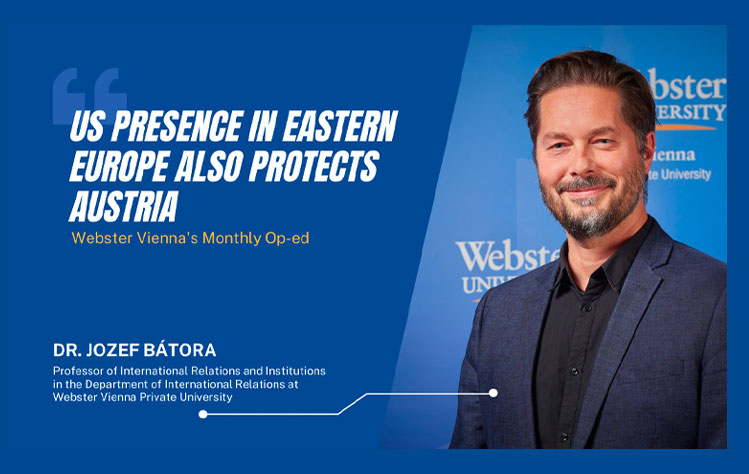Vienna Faculty Op-ed: U.S. presence in Eastern Europe also protects Austria
February 04, 2022
In his recent commentary (available in German only) in Die Presse, Prof. Bátora argues that the U.S. military presence in Eastern Europe also protects Austrian sovereignty. He describes how countries on the NATO alliance’s eastern flank negotiate bilateral defense agreements with the United States. These are technical agreements that set the terms for U.S. military presence in these countries and investments in defense infrastructure such as airports. In the face of growing tensions with Russia, Nordic NATO countries such as Norway and neutral non members such as Sweden and Finland have also stepped up bilateral forms of defense cooperation with the United States. In light of the deteriorating security situation in Europe, Prof. Bátora argues that Austria should also reconsider its embeddedness in Western defense alliances.

Dr. Jozef Bátora is Professor of International Relations and Institutions at the Department of International Relations at Webster Vienna Private University and Professor at the Department of Political Science at Comenius University. His research focuses on change and stability of international institutions, organisational theory, diplomacy, EU governance, and change dynamics in global security. Previously, he was a Senior Researcher at ARENA - Centre for European Studies at the University of Oslo, Fellow at the Institute for European Integration Studies at the Austrian Academy of Sciences, Visiting Professor at The Europe Centre, Freeman Spogli Institute for International Studies at Stanford University, and Visiting Scholar at SCANCOR at Stanford University. He has published widely in peer-reviewed journals and was coordinating editor of the Journal of International Relations and Development. He holds a Ph.D. in Political Science from the University of Oslo, an MPhil. in Public Administration from the University of Bergen, and BA in Political Science from Comenius University.
For more information, click here (restricted) or download the full op-ed.
